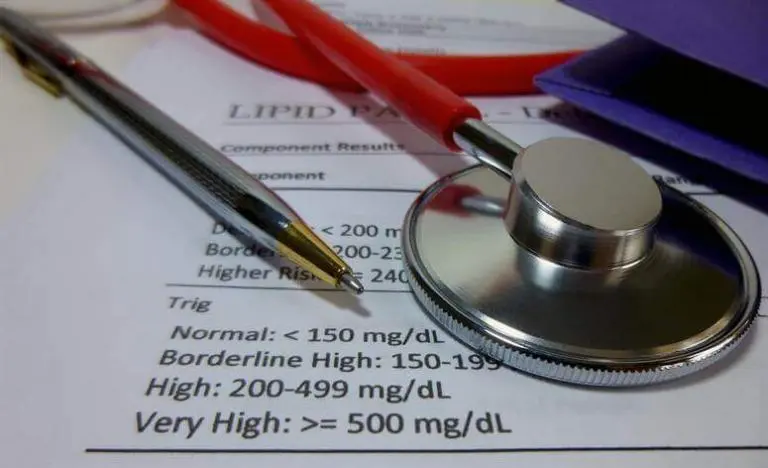High cholesterol is a significant risk factor for heart disease, stroke, and other cardiovascular diseases. Left untreated, it can cause serious long-term health complications. That’s why it’s essential to maintain normal cholesterol levels.
While there are genetic components that may contribute to higher cholesterol levels, eating a healthy diet, exercising regularly, and avoiding smoking are all great ways to keep your cholesterol levels in check. Additionally, speaking with your medical provider about lifestyle changes you can make or medications you may need can help ensure that your cholesterol stays within a healthy range. Taking control of your cholesterol today will help prevent diseases associated with high cholesterol down the road.
What Is Cholesterol?
Cholesterol is a waxy, fat-like substance that your body needs to build cells and certain hormones. There are two types of cholesterol: LDL (low-density lipoprotein) and HDL (high-density lipoprotein).
LDL cholesterol is known as ‘bad’ because it can contribute to plaque buildup in your arteries. HDL cholesterol is known as ‘good’ because it helps remove cholesterol from your body.

What Is a Normal Cholesterol Level
Normal cholesterol levels should fall below 150 mg/dL, with an LDL (bad) cholesterol level lower than 100 mg/dL and an HDL (good) cholesterol level of at least 40 mg/dL in men and 50 mg/dL in women. If your cholesterol levels do not fit within this range, make changes to your diet and lifestyle to bring them back into balance.
Normal cholesterol levels for men typically lie between 125 and 200mg/dL, whereas high cholesterol in men is classified as a total cholesterol level of over 200mg/dL. Normal cholesterol levels for women should remain below 200mg/dL, and research has shown that women tend to have higher HDL cholesterol levels than men.
How to Maintain Normal Cholesterol Levels
Elevated cholesterol levels may be caused by genetics, an unhealthy diet, lack of physical activity, or even certain medical conditions. Making lifestyle changes is the most effective way to maintain normal cholesterol levels. Here are some tips for keeping your cholesterol in check:
- Eat a healthy diet: Eating a well-balanced diet that is low in saturated and trans fats and high in fiber can help lower your cholesterol levels. Choose lean proteins such as fish, skinless poultry, beans, nuts, and seeds over red meat and full-fat dairy products.
- Exercise regularly: Regular physical activity can increase your HDL cholesterol while decreasing your LDL cholesterol. Aim for at least 30 minutes of moderate-intensity activity most days of the week.
- Avoid smoking and limit alcohol: Smoking can lower your HDL levels, while excessive drinking can raise your triglycerides and blood pressure. Limiting both is important in achieving healthy cholesterol levels.
- Maintain a healthy weight: Losing extra weight can help lower your LDL cholesterol and increase your HDL levels. Aim to achieve and maintain a healthy body weight through regular exercise and a balanced diet.
- Consider supplements: Certain supplements like red yeast rice, omega-3 fatty acids, niacin, and plant sterols may help increase HDL cholesterol. Consult your doctor before taking any supplement to ensure it is safe.
- Talk to your healthcare provider: See your doctor regularly to monitor your cholesterol levels and blood pressure. Your doctor may recommend medications if lifestyle changes don’t lower cholesterol levels enough or if other medical conditions are present.
When to See a Healthcare Provider
If left untreated, high cholesterol can lead to severe complications, including narrowing of arteries, which increases the risk for stroke and heart attack – two life-threatening conditions that everyone should avoid if possible through proper management and preventive measures like seeing a medical provider when necessary. Knowing when it’s time to get checked for elevated lipid values can make all the difference in preventing serious health problems.
For individuals with heightened cardiovascular risk factors such as hypertension, diabetes mellitus, cigarette smoking, or a family history of premature coronary heart disease (CHD), it is advisable to undergo follow-up lipid screening. Specifically, for males aged 25 to 30 and females aged 30 to 35, periodic lipid screenings are recommended.
On the other hand, for those with lower cardiovascular risk, lacking the aforementioned factors, follow-up lipid screening is suggested for males at the age of 35 and females at the age of 45.
If you are not in optimal range for any of your values, you need to see a healthcare provider. This will assist with lifestyle modifications and monitoring.
If you’re concerned about your cholesterol levels, visit your medical provider. American Family Care centers have extended hours and are open on the weekends – no appointment is necessary. Head to one of our AFC locations to receive convenient and affordable care for your healthcare needs.


